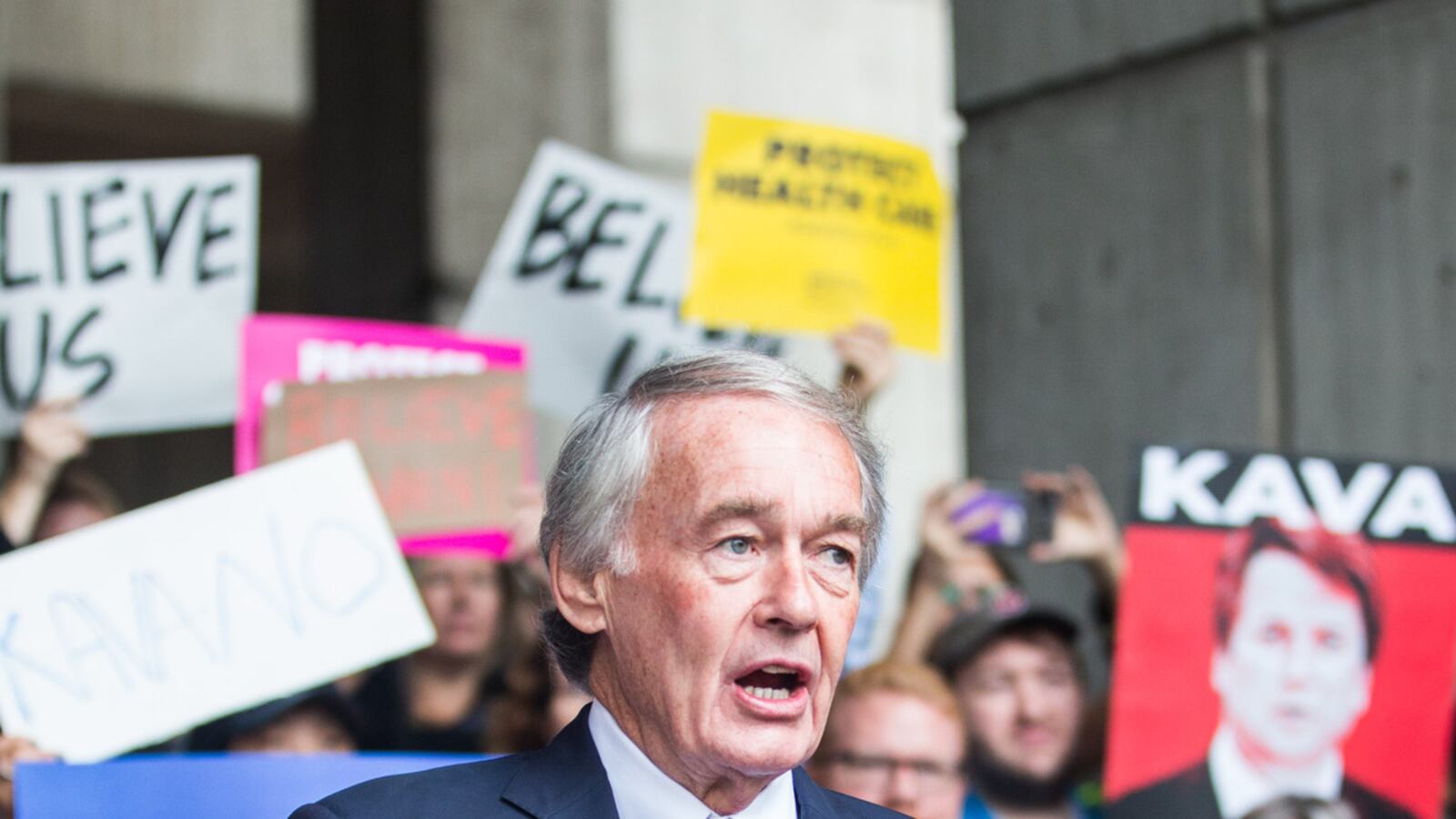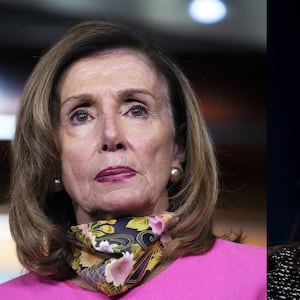On Tuesday night, Rep. Joe Kennedy III (D-MA) did something that no other member of his storied political family has done before: lost an election to represent the commonwealth of Massachusetts.
With 44 percent of precincts reporting, it was clear that Sen. Ed Markey (D-MA) had quashed Kennedy’s primary challenge for this U.S. Senate seat, and Kennedy conceded to Markey. Markey’s victory all but secures a second term for the 74-year old incumbent in November’s general election, and deals a blow to the previously ironclad Kennedy political brand.
The result was a remarkable end to one of the most heated, and most unusual, Democratic Party primary fights in recent memory. The contest totally scrambled the ideological and generational lines that typically define intra-party contests: Kennedy, a 39-year old congressman and grandson of Robert F. Kennedy, launched his primary bid against Markey a year ago promising to tackle a broken Washington and bring a new generation of leadership to the Senate. He leapt at the chance to paint Markey, who had previously kept a low profile in the state, as absent and out of touch.
But Kennedy, long considered a bright rising star in the party, didn’t pair that typical challenger’s pitch with any sort of broader critique of his opponent’s political worldview. He effectively ran neither to Markey’s left nor his right, all while he attempted to poke holes in votes and positions that Markey took during his six years in the Senate and 35 years in the House, such as a vote in favor of the Iraq War.
For all Kennedy’s rhetoric about representing the next generation, it was Markey who effectively cast himself as the candidate of the party’s new guard. An activist left wing that has usually mobilized to defeat incumbents in 2020 rallied instead to the defense of a vulnerable one, an effort that very may well have saved Markey in a race in which he was pegged by pollsters and pundits as an underdog early on.
Markey ran heavily on his sponsorship of the Green New Deal, and touted the endorsement of his House partner in the legislation—Rep. Alexandria Ocasio Cortez (D-NY)—everywhere on the campaign trail. He attracted the kind of youthful, decidedly left-wing energy that surrounded Sen. Bernie Sanders’ (I-VT) campaigns; his online fans in the so-called “Markeyverse” spent the primary posting memes and gushing over photos of the septuagenarian candidate sporting 30-year old Nike high tops on the trail.
In a sign of how completely the race scrambled Democratic fault lines, some of Kennedy’s top endorsements came from Speaker Nancy Pelosi (D-CA) and the co-chair of the Congressional Progressive Caucus, Rep. Mark Pocan (D-WI); Markey’s, meanwhile, came from Ocasio-Cortez and former Vice President Al Gore.
The reinvention of Markey, who was known in the House as a moderate, surprised longtime observers of Massachusetts politics. But what was most shocking in the state was Markey’s willingness to attack the sacrosanct Kennedy brand in a bid to turn his challenger’s greatest strength into a real weakness.
Throughout the campaign, Markey and his allies cast Kennedy as an opportunist who sought to capitalize on his famous name to nab a Senate seat and lacked any obvious rationale for unseating a solid incumbent. And Markey frequently made subtle and not-so-subtle digs at the state’s foremost political dynasty. A viral ad from Markey in August ended with the taunting line: "With all due respect,” he said, “it's time to start asking what your country can do for you.”
And in an August debate, Markey went after Kennedy over financial support from his father—former Rep. Joe Kennedy II—saying, "I'm sure your father's watching right now. Tell your father right now that you don't want money to go into a super PAC that runs negative ads.”
That rhetoric seemed to rankle the Democratic old guard: the reason for Pelosi’s unusual jump into the primary was, reportedly, Markey’s attacks on the Kennedy family, which were said to have offended her deeply.
Kennedy’s defeat in Tuesday’s primary clouds the future of his family’s most prominent active politician. In January, he will be out of office, having resigned his seat in Massachusetts’ 4th District to run for Senate. Massachusetts politicos speculate he might run again if the state’s other Senate seat, held by Sen. Elizabeth Warren (D-MA), opens up in the event that Warren joins a potential Joe Biden presidential administration.







